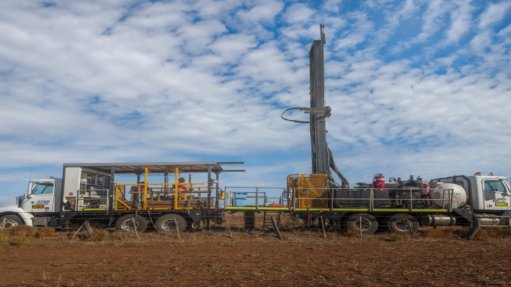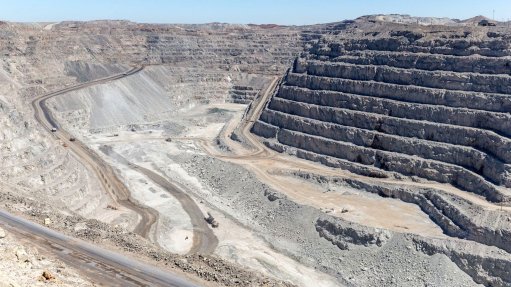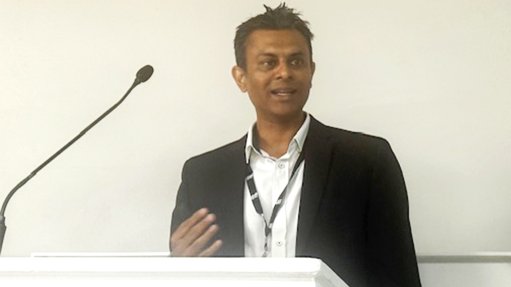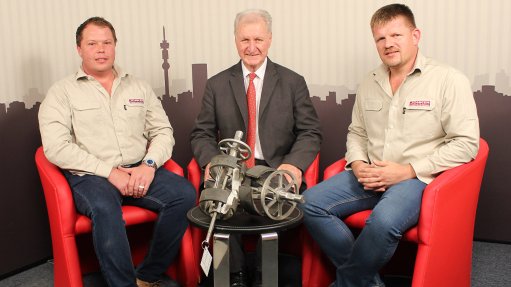W Cape focusing on creating certainty in agriculture sector

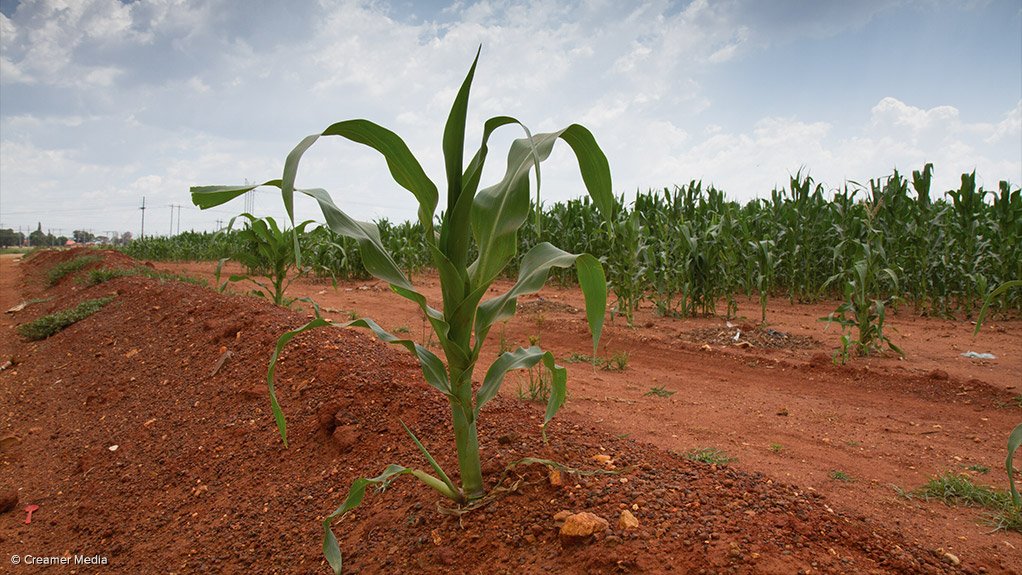
CERTAINTY NEEDED Farmers are positive about recent rains in the Western Cape, but more rain is needed to sustain recovery efforts
The Western Cape provincial government is focusing on creating certainty for the agriculture industry by trying to ensure that farmers can continue farming and save jobs by requesting an increase in the water allocation to the industry from the Department of Water and Sanitation (DWS), says Western Cape Economic Opportunities Minister Alan Winde.
He points out that many farmers have had to curtail their water use drastically, in some cases down to only 20% of their usual allocation, such as the farmers in the Lower Olifants region, who draw their water from the Clanwilliam dam. “These farmers normally receive 8 400 m3 and some only received around 1 700 m3 in the 2017/18 season”.
In addition, the low rainfall has resulted in a lack of feed for livestock, and an assessment of the state of vegetation across the Western Cape has found several areas to be critically dry, placing livestock at risk.
“Some funding has been secured to feed livestock, but the livestock being fed are a fraction of the total number of livestock in the province. It will require three good rainfall seasons for the veld conditions to recover adequately,” Winde reiterates.
The final impact will be determined later in the year with an update on the Drought Policy Brief numbers.
The Western Cape Department of Agriculture (WCDoA) in February tabled a report that estimates the impact of the drought on the agriculture sector to amount to a gross values loss of about R5.9-billion and the loss of nearly 30 000 jobs.
The allocation of water for the agriculture sector is done every year in November, after the winter rainfall, and the WCDoA has formally requested water allocations be increased even before this time. However, the DWS has indicated that reviews will take place only after the winter rainfall, Winde points out.
“Such an incremental increase will assist in planning irrigation strategies for the next season that will start soon. Water restrictions during the current winter season need to be revised to enable farmers to use the current surplus flow conditions in some rivers,” he emphasises.
Rising Dam Levels
Although the rising dam levels have brought some relief to farmers in the region, they “are not out of the woods yet”, emphasises Winde.
The rain that fell during the planting season for grain farmers made many such farmers positive about the crops. The concern is that follow-up rain is required throughout the season, with grain crops in the Rûens area already struggling, as little rain has fallen in that area.
In addition, areas in the Karoo have – compared with the rest of the province – received little rainfall and the situation remains critical for farmers.
While the combined water levels of the dams in the province are at about 50%, it is too early to determine what the DWS allocations will be and how it will impact on the agriculture sector, Winde points out.
“We are hopeful that, as a result of fuller dams, allocations will be higher.”
Moreover, allocations for farmers drawing from the Greater Brandvlei and Clanwilliam dams are based on available water supply in these dams and, currently, Clanwilliam dam is nearly full. “The Clanwilliam dam wall must be raised to provide adequate water storage in this area, and until such time as the DWS does this, the risk of future water shortages remains,” Winde points out.
Future of Agriculture
The WCDoA has prepared a detailed Smart Agri plan, which details responses to various climate change eventualities, including drought, Winde states.
Conservation agriculture is the key cornerstone of the drought response plan and focuses on minimal soil disturbance, soil cover and diversification of crops. “These are being studied at our research farm Langewens, and have been implemented at farms across the province resulting in greater yields with less water use,” he notes.
An alternative crops research fund has been developed to fund research into alternate and diverse crops such as berries, cherries and honeybush, Winde adds.
Further, the WCDoA has funded Fruitlook, a system that enables farmers to access information, based on satellite imagery, on actual crop water use, water deficits and the biomass production of their crops, free of charge, Winde explains.
The system also enables farmers to determine which areas are most in need of irrigation, subsequently optimising irrigation water use. Farmers will save water, electricity and fertiliser, Winde claims.
Continued rainfall is necessary for the success of the Western Cape agriculture sector, he points out, adding that the projects involving the Brandvlei and Clanwilliam dams are crucial and need to go ahead. The Brandvlei dam project will cost about R15-million and involves increasing the capacity of the feeder canal, allowing for the irrigation of about 4 400 ha while creating about 8 000 jobs. The Clanwilliam dam project involves raising the dam wall, which was estimated to cost around R2-billion in 2013/14.
“The projects will go a long way towards ensuring that water supply can be more optimally stored,” Winde claims.
The projects will reduce the risk of water restrictions on the existing irrigated fields and provide water for an additional 5 000 ha of irrigation, he concludes.
Article Enquiry
Email Article
Save Article
Feedback
To advertise email advertising@creamermedia.co.za or click here
Press Office
Announcements
What's On
Subscribe to improve your user experience...
Option 1 (equivalent of R125 a month):
Receive a weekly copy of Creamer Media's Engineering News & Mining Weekly magazine
(print copy for those in South Africa and e-magazine for those outside of South Africa)
Receive daily email newsletters
Access to full search results
Access archive of magazine back copies
Access to Projects in Progress
Access to ONE Research Report of your choice in PDF format
Option 2 (equivalent of R375 a month):
All benefits from Option 1
PLUS
Access to Creamer Media's Research Channel Africa for ALL Research Reports, in PDF format, on various industrial and mining sectors
including Electricity; Water; Energy Transition; Hydrogen; Roads, Rail and Ports; Coal; Gold; Platinum; Battery Metals; etc.
Already a subscriber?
Forgotten your password?
Receive weekly copy of Creamer Media's Engineering News & Mining Weekly magazine (print copy for those in South Africa and e-magazine for those outside of South Africa)
➕
Recieve daily email newsletters
➕
Access to full search results
➕
Access archive of magazine back copies
➕
Access to Projects in Progress
➕
Access to ONE Research Report of your choice in PDF format
RESEARCH CHANNEL AFRICA
R4500 (equivalent of R375 a month)
SUBSCRIBEAll benefits from Option 1
➕
Access to Creamer Media's Research Channel Africa for ALL Research Reports on various industrial and mining sectors, in PDF format, including on:
Electricity
➕
Water
➕
Energy Transition
➕
Hydrogen
➕
Roads, Rail and Ports
➕
Coal
➕
Gold
➕
Platinum
➕
Battery Metals
➕
etc.
Receive all benefits from Option 1 or Option 2 delivered to numerous people at your company
➕
Multiple User names and Passwords for simultaneous log-ins
➕
Intranet integration access to all in your organisation







